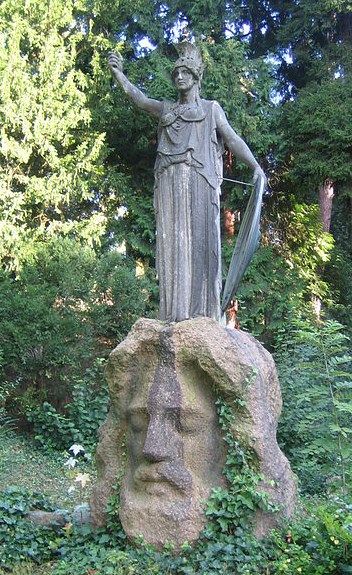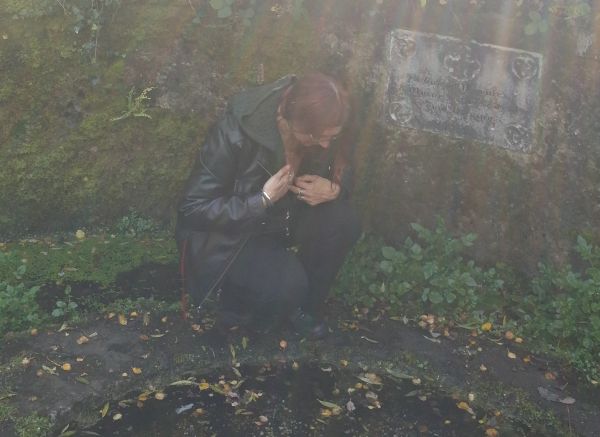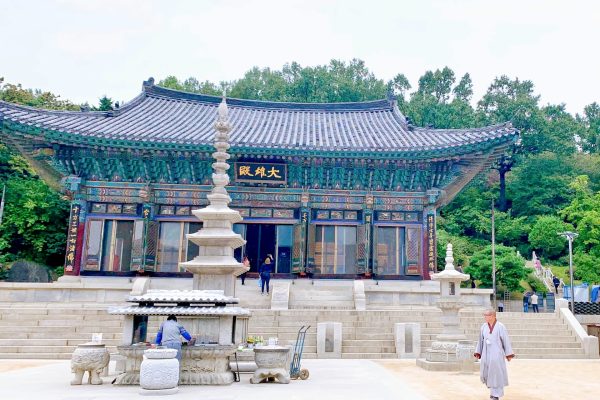My mother’s retirement speech to the graduating class of University of Toronto Schools (UTS). It is anecdotally significant to my family, of course, but I share it here because she also speaks of universal themes, not least forging a courageous life in the face of challenge and adversity. I find the snippets she shares of her experience fascinating and the nuggets of her life philosophy heartening. On this day that marks her passing from this world, I share this from my heart and hope you enjoy. The photo that accompanies this article is of my Mom climbing Macchu Picchu – in her seventies, after retirement!
As I am the first lady staff member to end her teaching career at UTS, I felt I should like to say a few words.
In 1907 Nellie McClung began to fight for women’s rights in Canada. In 1929, as a member of the Alberta legislature, she was instrumental in having passed a bill whereby women were declared to be persons. Within my professional years I have been witness to the gradual change in the attitude of society toward women in the workforce and professions, especially married women. I still remember the commiseration my husband received when it became known that his wife wanted a career. The sympathy could not have been greater were he to have been saddled with a wife with two heads or some other such abnormality. The fact that I was accepted at OISE, today’s FEUT (Faculty of Education University of Toronto) at all resulted from a kind of fluke. They knew I was married by my name, but assumed at my interview that I must have been widowed in the war or I wouldn’t be applying for their course. There was one other married woman accepted that year. She was a widow. Twice I was rejected from consideration for teaching positions because the deep-seated conviction of the male selection committee was that as a married woman, with children no less, my place was in the home.
The first time as a teacher I was expecting a child, I had to leave as soon as a replacement could be found. I was three months pregnant and it was judged that my delicate condition would be a source of tremendous embarrassment. By the second time when, as a teacher I was in the family way, the Age of Enlightenment had dawned. The concern was that I was taking my students through to the end of the year to avoid a hiatus in their preparation of the Grade 13 exam. I made their deadline. Just! My classes ended on a Friday and Tiffany was born on Monday. With this background I felt it was a real irony that one reason I was invited to join the teaching staff of UTS was because I was a woman. And the married status had no particular import. UTS, becoming at almost the last ditch, a co-educational institution, necessitated the hiring of several lady staff as quickly as vacancies on staff appeared. Another bastion of male exclusiveness had been breached. The 20th century in history is destined to be known not only as the age of the greatest technological advances, of the two most devastating World Wars, but of the ultimate recognition of the woman as having equal potential to a man to be an active, contributing, creative individual in the workforce and professions.
I have enjoyed being in the vanguard of the dawning of this age of recognition. Today however I equate with the graduating class. Albeit, I have been a much slower learner. We are both ending a chapter. So far, the book has been an exciting one, full of adventures, mundane and bizarre, characters of varying race, creed and ability, dramatic moments, challenges, soul wrenching disappointments, self-enriching achievements, the cacophony of sound pleasant and unpleasant, camaraderie, joy, frustration, love. As I pause to reflect on the story thus far, I do not share Odysseus’ statement (as Tennyson quipped it), “How dull it is to pause”. There comes a time when it is salubrious to allow the impact of experience to settle. We do reach saturation and need time to refurbish our energies for the future. Michael Lee, talking on ‘Time’ in his Middleton speech referred to the present as a point between the experiences of the past and those yet to come in the future: an island, if you will, between the receding tide of the past and the choppy waves of the future.
You and I, graduating class, are on that island. Our story, temporarily laid aside, brings us to a quiet moment to appreciate the plot development to date, the significance of our life at UTS. For me, I’ll reflect these 12 years with nostalgia: the juggling of umpteen projects to fit on the shelves in room 203, the numerous intellectually curious students I have taught, the budding thespians I have directed, midnight sentinel duty at Tawingo, campfires at Norval, May madness, committee stalemates, faulty equipment, tropical heat, Arctic chill, but always the prevailing sense of purpose and determination to surmount the obstacles, hang on to one’s stamina, and meet the imminent deadline. No, while the school year was in progress, it just was not feasible to pause.
On the other hand, however, I do agree with Odysseus’ statement as I pause to reflect. I am part of all that I have met, yet all experience is an arch through which gleams that untraveled world – that is the future. Our untraveled worlds will differ because for each, there is a season: a time to plant – that is yours – a time to pluck up that which is planted – that is mine. Our seasons differ, yes, but we do share the thrill of challenging the unknown and traveling in our respective lives to reach the self-imposed goal. May the ensuing chapters of our story be as sustaining as those we have just completed.
A final thought, rather an enigmatical one really. Although as a classicist I have dealt with the past. My philosophy has always been to make the most of the present and lay down good foundations for the future. In our combined enthusiasm to start on the next chapters of our story, let us not scorn the importance of the present, ‘the right now’. For once it becomes the past, we cannot relive it to make it more meaningful. One of Rome’s great poets, Horace, said, “Carpe Diem” – pluck the flower of today.
Yes, even while we speak, the door has shut,
Upon a portion of the passing flow
Of that most precious gift to cherish but
The present tense of time is never slow.
Do not waste it, students. Enjoy!
May I wish you all good luck – bonam fortunam. May you find happiness, self-enrichment and sustaining companionship in the years ahead. Salvete, discipuli, atque valete.


